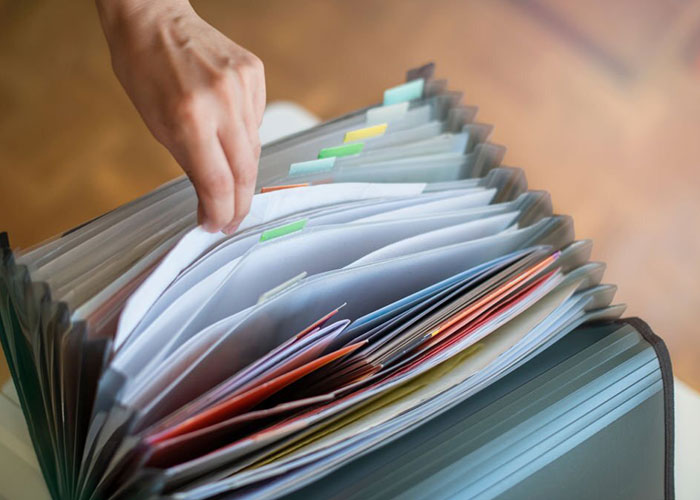The Right Way to File Your Business and Personal Taxes

Filing your business and personal taxes can be daunting, but it’s an important part of being a responsible business owner and citizen. By following the right steps and keeping organized records, you can ensure you’re paying the correct amount of taxes and avoid any potential penalties or issues with the IRS.
By ensuring you take the right steps in filing your taxes, you can count on the smooth operation of your business and compliance with IRS rules. This post guides you through some key steps to follow when filing your business and personal taxes.
Learn the process and best practices you can use to make the tax filing process as smooth and stress-free as possible.
Determine Your Tax Filing Status
One of the most important things you can do to file your business and personal taxes the right way is to determine your tax filing status. Your tax filing status will determine the tax rate and deductions you’re eligible for.
The five main tax filing statuses are:
- Single
- Married filing jointly
- Married filing separately
- Head of household
- Qualifying widow(er) with dependent child
Depending on the type of business you have and your location, you may be required to pay federal, state, and local taxes. Some common taxes that businesses may be required to pay include:
- Income tax: This is a tax on the profits your business generates. Your income tax rate will depend on the size of your business and the tax bracket you fall into.
- Sales tax: If your business sells goods and services, you may be required to collect and remit sales tax to the government. Your sales tax rate will depend on the location of your business and the type of goods or services you sell.
- Payroll tax: If you have employees, you may be required to pay payroll taxes, which include Social Security, Medicare, and unemployment insurance taxes.
- Property tax: If you own a business property, you may be required to pay property taxes to the local government.
In addition to these business taxes, you may also be required to pay personal taxes on any income you receive, including your salary or profits from your business.
Establish Diligent Record Keeping

In order to file your taxes accurately, you’ll need to gather all necessary documents and information. Having necessary documents on hand means you have to keep on track with meticulous record keeping throughout the year.
Good recordkeeping includes keeping track of all income and expenses, as well as any deduction you are eligible for. Keeping good records makes it easier to file your taxes and will also help you claim all the deductions and credits you are entitled to.
If you aren’t diligent about record keeping, challenge yourself to keep the following documents organized next year:
- W-2 form (if you’re an employee)
- 1099 forms (if you’re an independent contractor)
- Receipts for business expenses
- Other important financial documents
Determine Your Business Structure
Your business structure will determine how you file your business taxes. If you’re a sole proprietor or single-member LLC, you’ll report your business income and expenses on your personal tax return.
On the other hand, if you have a partnership or multi-member LLC, you’ll need to file a separate business tax return (Form 1065) and issue K-1 forms to each of your partners.
If you have a corporation, you will need to file a corporate tax return through Form 1120 or Form 1120-S.
For more detailed information about filing business taxes, read our article here.
Choose the Right Tax Forms

There are many different tax forms you may need to file, depending on your business structure and the type of income you receive.
Some common forms for small businesses include:
- Form 1040 – This is the main personal tax form most taxpayers use to report their income and claim deductions.
- Schedule C (Form 1040) – This form is used by sole proprietors and single-member LLCs to report business income and expenses.
- Schedule E (Form 1040) – This form is used to report income or loss from rental properties, partnerships, and S corporations.
- Form 1120 or Form 1120-S – Corporations use these forms to report their income and expenses.
- Form 1065 – This form is used by partnerships and multi-member LLCs to report their income and expenses.
Claim Deductions and Credits
As a business owner, you may be eligible for certain deductions and credits that can reduce your tax liability. Some common deductions include business expenses such as office supplies, travel and transportation costs, and employee benefits.
You may also be eligible for credits for things like hiring employees from certain disadvantaged groups or investing in renewable energy.
Click here for a list of lesser-known tax deductions.
File Your Taxes On Time
The deadline for filing your business and personal taxes is typically April 15th of each year. If you’re unable to file by the deadline, you can request an extension using Form 4868.
However, keep in mind that an extension only gives you more time to file your taxes – it does not give you more time to pay any taxes that you owe.
Pay Any Taxes Owed
If you owe any taxes, you’ll need to pay them by the deadline to avoid late fees and penalties. You can pay your taxes online, by mail, or in person at a local IRS office. By following these steps and working with Cook CPA Group, you can ensure that you’re filing your business and personal taxes correctly and avoiding any potential issues with the IRS.

